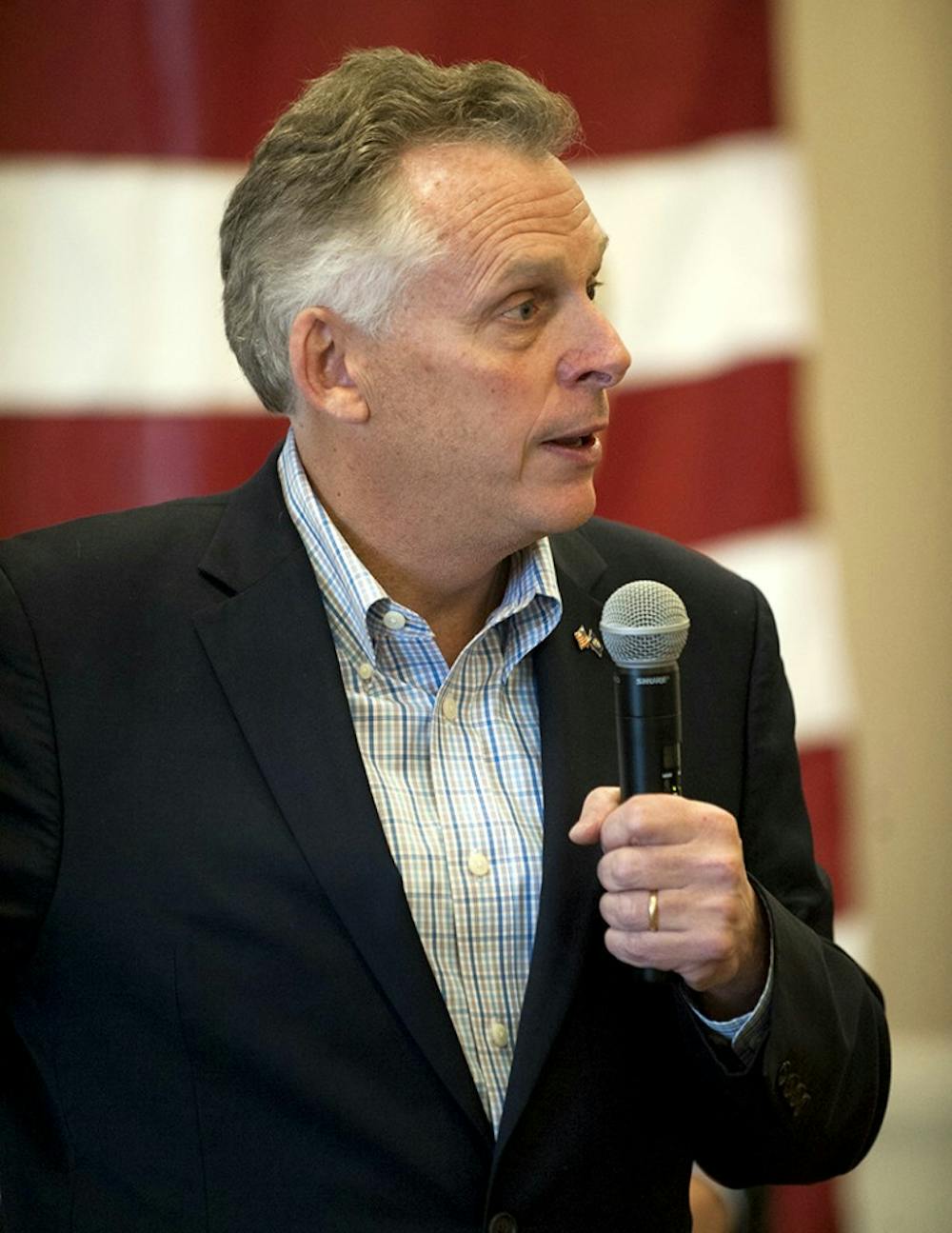In a 4-3 ruling last week, the Supreme Court of Virginia struck down Governor Terry McAuliffe’s previous executive orders re-enfranchising felons en masse.
According to the court, re-enfranchisement of a class of people, rather than of particular individuals, does not fall under the clemency powers of the governor set forth in Article V of the Virginia constitution.
Article II of the constitution, which the court’s majority placed at the center of its ruling, provides that “no person who has been convicted of a felony shall be qualified to vote,” with the exception of those whose “civil rights have been restored by the governor.”
“Governor McAuliffe’s Executive Order has rewritten the provision to invert the rule and the exception,” reads the opinion written by Chief Justice Donald Lemons. “Under his order, no person who has been convicted of a felony shall be disqualified to vote unless the felon is incarcerated or serving a sentence of supervised release.”
In response, McAuliffe stated that he plans to restore voting rights individually to thousands of felons who have completed their sentences.
University Law Prof. A. E. Dick Howard, the primary drafter of the state’s current constitution, advised the governor about his legal authority prior to the first order being issued.
Howard also said he submitted an amicus brief to the Supreme Court — together with several other legal experts — in support of the governor’s authority.
Justices William Mims and Cleo Powell wrote a pair of dissenting opinions, disagreeing with the majority both on whether the petitioners had standing to bring the case and over the constitutionality of the governor’s actions.
In the majority opinion, Lemons stressed that the role of the judiciary is to determine the legality of actions, and not to pass judgment on the political issues underlying them.
“Although the Governor is entitled to champion his views, he cannot do so in contravention of law,” Lemons wrote. “Governor Kaine had no less of an objection.”
Lemons’ ruling notes that McAuliffe’s orders restored rights to felons “without regard for the nature of the crimes or any other individual circumstances,” a fact he claims makes the action an unconstitutional “suspension” of law, rather than a grant of clemency.
House of Delegates Speaker Bill Howell, one of the petitioners, also said re-enfranchising felons as a class without consideration of their crimes is a breach of authority.
“Was this fella convicted of a felony for embezzling $800, which he’s since repaid?” Howell said. “Or is this guy guilty of a triple homicide? That’s the whole problem with doing it en masse. 206,000 people at once — you don’t know who you’re giving it to.”
However, Howard and Sam Coleman, Assistant Communications Director for the governor’s office, both said the particular crimes involved have no bearing on the governor’s constitutional authority.
“The governor has worked hard to open up democracy for everyone, so the distinction between violent and non-violent wasn’t really the concern,” Coleman said. “It was whether or not you’ve completed your debt to society.”
Howard said the constitution imposes no duty on the governor to provide a rationale for his decision to restore civil rights.
“He is obliged to report annually to the general assembly the reasons he’s assigned in granting a pardon commuting capital punishment or remitting a fine or penalty,” Howard said, “but interestingly enough, that same provision of the constitution imposes no reporting obligation on a governor when he restores political rights.”
Although some have accused McAuliffe of using felon re-enfranchisement to tip the state’s electoral balance in the favor of Democrats, Howell says it is not a political issue.
“This isn’t about politics,” Howell said. “This isn’t about the 2016 election. It’s about the Constitution of Virginia, the rule of law, the separation of powers and the majority of the court held that the governor clearly overreached when he basically amended the constitution by executive action.”
Geoffrey Skelley, associate editor of Sabato’s Crystal Ball, acknowledged the accusations of political motivations on McAuliffe’s part, but said that the state’s previous Governor Bob McDonnell, a Republican, also used his executive authority to restore rights to some felons.
Based on a demographic analysis and an estimate of likely turnout, the Crystal Ball staff determined that successful re-enfranchisement of released Virginia felons could result in a net gain of around 28,000 votes for the 2016 Democratic presidential ticket.
“But it is important to remember that the margin in Virginia in 2012 was around 150,000 votes,” Skelley said. “It’s unlikely that this is going to be some move that would be decisive in deciding the election in Virginia.”
Residents of Virginia who wish to vote in November must be registered by October 17. Coleman said McAuliffe intends to meet that deadline.
“We’re going to do everything in our power, first and foremost, to reach out to those people who worked so hard to get back into the democratic process and had that ripped out by politics,” Coleman said. “And the governor has said on many occasions if he has to pull out the Autopen to get it done, we’ll get it done.”







